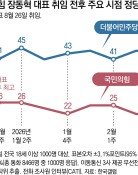Morning of the Lunar New Year
Morning of the Lunar New Year
Posted January. 28, 2022 07:58,
Updated January. 28, 2022 07:58

On the boundary of the eve of the Lunar New Year and the first day of the new year, people set off fireworks and open a new bottle of wine, drinking up the warmth of spring and releasing stiffened shoulders. As soon as the morning breaks, people attach spring welcoming messages to the door and make a wish for the new year.
South Koreans usually post the phrase “May the Coming of Spring be Blessed with Great Happiness” and “On a Clear Day, Many Good and Joyful Things Will Occur.” Chinese write seven characters in red calligraphy meaning good fortune and prosperity. These messages display people’s earnest wishes for happiness. Before paper became common, our ancestors decorated doors with paintings of peach trees and a ghost, as a charm that keeps away evil spirits. Posting a greeting message for spring is considered an old tradition to many modern people, but we can still hold on to lines of a poem as our own charm as following: “Morning of the New Year Comes Like Lights Turned Off and On / Come, Thou, With Fluttering Heart” (Soo-kwon Song); or “Joy of Hope / is a Present the New Year Gives” (Soo-hee Hong).
As a politician, Wang An-seok was resolute to reform outdated political system. He sought to introduce new laws to eliminate corruption, but faced against fierce objection from the opposition politicians and unexpected harmful consequences. As suggested by the reputation that he is “the only chancellor who did not ride a sedan chair, marry concubines, and leave inheritance,” Wang was a person of uncompromising spirit. Knowing this background, the poem is read more than a simple celebration of the new year; rather, it also sounds like the poet’s plea for an audacious reform of anachronistic values.




![“20대엔 28개, 80대엔 15개… 노년기 치아상실 피하려면”[베스트 닥터의 베스트 건강법]](https://dimg.donga.com/c/138/175/90/1/wps/NEWS/IMAGE/2026/02/27/133437590.4.jpg)

![‘노인 냄새’ 씻으면 없어질까?…“목욕보다 식단이 더 중요”[노화설계]](https://dimg.donga.com/c/138/175/90/1/wps/NEWS/IMAGE/2026/02/27/133434557.3.jpg)
